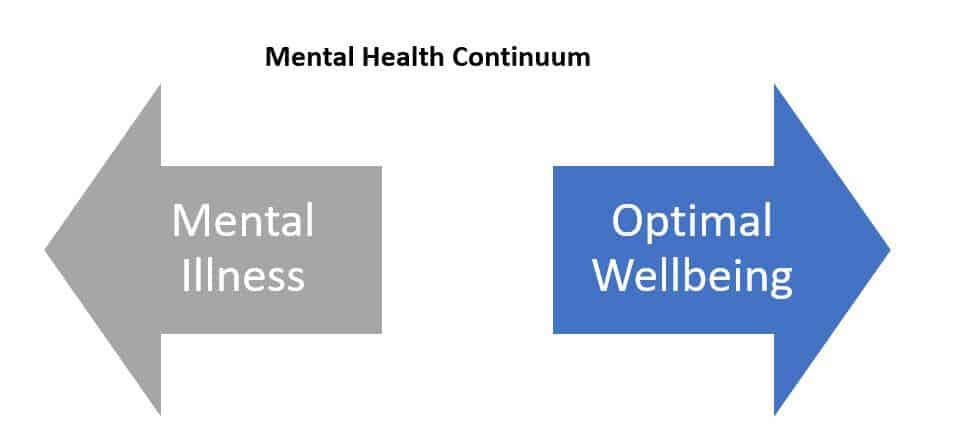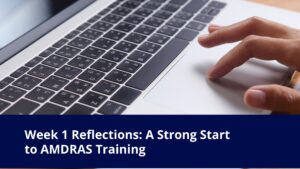
Job Opportunities – Updated 29.4.2025
Mediation Institute is happy to share out to our community information about Job Opportunities relevant to dispute resolution practitioners. Contact us to list your job.

Paul Kenna is an experienced family lawyer, mediator, family dispute resolution practitioner and legal supervisor for Interact Support.
Too many people generally and too many people working in the broader legal industry confuse Mental Health and Mental Illness and consequently shy away from discussing either. Mental Illness is a convenient excuse for anything out of our ordinary that we don’t want to address.
Yet if you are willing to look a little closer you will realise that mental illness is at the end of continium under the banner of Mental Health.

If you had a scale between 1 and 100 where 100 was optimal wellbeing and 1 was a profoundly challenged person who would struggle to exist in society then most of the incidents of Mental Illness that we come across in our daily lives in this profession would be in the 60s, 70s, 80s or 90s in this scale. Psychologists have tried to rate mental Illness and what is normal in what is known as the Global Assessment of functioning.
This scale was included in the DSM-IV (Diagnostic and Statistical Manual of Mental Disorders version IV) and is summarised as follows:
91 – 100 No symptoms. Superior functioning in a wide range of activities, life’s problems never seem to get out of hand, is sought out by others because of his or her many positive qualities.
When I was studying it was pretty hard to maintain a 90 + grade average – indeed I dont think I ever did as an undergraduate student but that improved for the better as a part time mature aged student. In a profession where you are expected to be right all the time despite the facts and the law are selldom that clear cut raises stress levels. Add to this the stress our clients bring to the practice of Family law and Dispute Resolution. A little bit of self care may be needed.
There is a nice resource that was developed by the Law Society of South Australia to assist its members and those in the profession generally which you can access whether you are a lawyer or not. Its called their Health and Wellbeing package that aims to expand participants’ knowledge of mental health issues, and for participants to then contribute to building a culture of wellness and self-care throughout the legal profession. To access the program, go to the Law Society of South Australia ‘s website. You don’t have to be a LSSA member but you will need to create an account and login. Click on this link It should take between one to one and a half hours, and completing it earns you one CPD unit (for Victorian Lawyers in the compulsory area of professional development).

Mediation Institute is happy to share out to our community information about Job Opportunities relevant to dispute resolution practitioners. Contact us to list your job.

Information about Mediation Institute’s Independent Complaint Handling Service for RTOs

Even a marketing director can learn to mediate.By Roanna, a student on the AMDRAS course. So here we are — one week into AMDRAS (Australian

There is also another resource that may be of value to practitioners working in high stress areas. Mindscount has been established to focus legal practices on what they are doing to their lawyers. Check out their online Publications and other resources for people working in this industry https://mindscount.org/
One of the prices we have to pay when considering issues like this is that it can stir up issues in our own lives that may not have been fully dealt with. Thats healthy and needs to be addressed but not necessarily alone. We have great resourses available if we need support such as:
Lifeline Crisis support Phone 13 11 14 (24 hour)
SANE helpline (9am -5pm) 1800 187 263
Beyondblue info line 1300 224 636
Black Dog Institute (02) 9382 2991
Men’s Line Australia 1300 789 978
Salvos Care Line 1300 363 622
And Your GP who can provide you with a Mental Health plan and discounted access to psychological support
Mediation Institute acknowledges the Traditional Owners of country throughout Australia and recognises their continuing connection to land, waters and community. We pay our respect to first nations peoples their cultures, and to the Elders past, present and emerging.
Be aware of cyber fraud. You should contact our office immediately if you receive any email suggesting that the back account details on an invoice have changed, even if that email appears to have been sent from our company.
Our Vocational Training is delivered in partnership with Inspiritive Pty Ltd RTO Code 21178
Mediation Institute Pty Ltd PO Box 16, Loch Sport Victoria, 3851
Tel: 1300 781 533
ABN 43 166 175 962 | NZBN 94 290 510 103 00